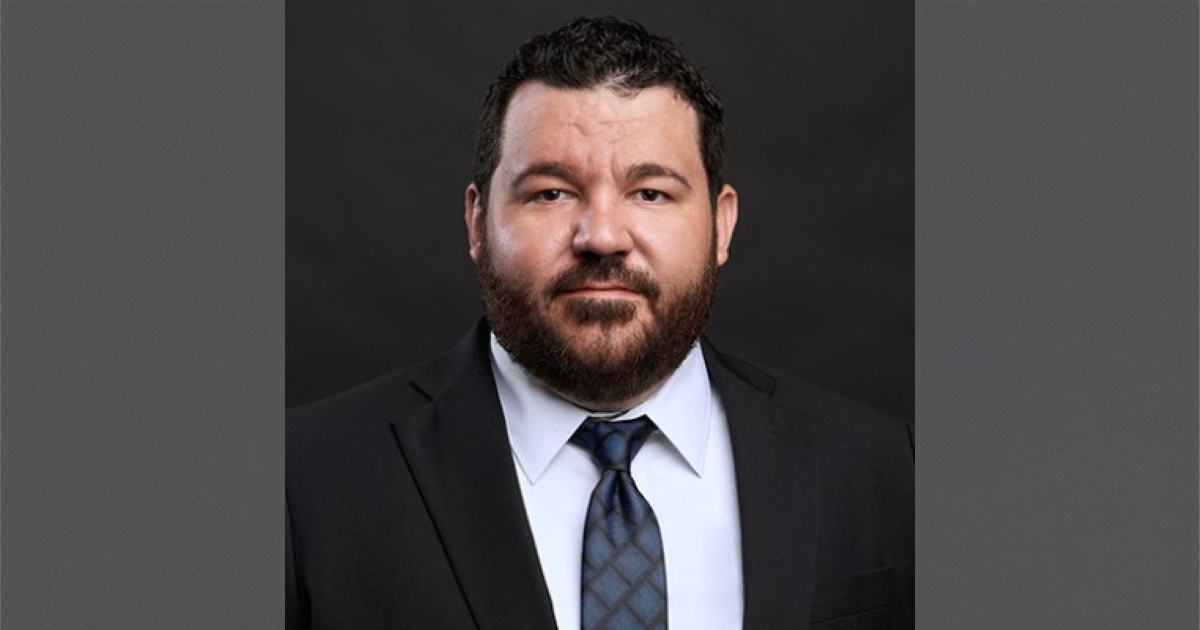
Alicia Potolsky, DNP, RN, associate chief nursing officer at El Camino Health
Photo: Alicia Potolsky, DNP, RN
El Camino Health has served the communities of Silicon Valley and the South Bay for more than 60 years, with two not-for-profit acute care hospitals in Mountain View and Los Gatos, and 26 care locations across the region, which include primary care, multi-specialty care and urgent care. El Camino Health is dedicated to giving patients high-quality care using the most advanced technology and research.
The hospitals have earned numerous awards for clinical excellence, including being named one of the World's Best Hospitals 2025 by Newsweek, one of the Best Hospitals for Maternity Care by U.S. News & World Report, one of America's 100 Best for Cardiac Care by Healthgrades and becoming the San Francisco Bay Area's first Magnet hospital, earning four consecutive designations from the American Nurses Credentialing Center for nursing excellence.
Facing down significant issues
The nursing profession continues to face significant challenges, particularly around retention and support. As care becomes more complex and shifts increasingly to outpatient settings, the patients who are hospitalized tend to be more acutely ill.
At the same time, the nursing workforce is aging, and fewer new nurses are entering the field. The average registered nurse in the U.S. today is about 50 years old, and with a growing elderly population, the demand for skilled nursing care is only increasing. This dynamic creates a significant strain on existing staff, especially newer or transitional nurses who may feel overwhelmed by the complexity and pace of the hospital environment.
"In addition to the shortage of nurses, we're seeing a rise in workplace violence, more patients with substance use disorders and increasing mental health needs – all of which add stress and contribute to burnout," said Alicia Potolsky, DNP, RN, associate chief nursing officer at El Camino Health. "For example, hospital workers face much higher rates of nonfatal workplace assaults than all other private-sector industries.
"Issues such as these can deter potential nurses from entering the profession and push experienced nurses to seek roles in less demanding outpatient settings," she continued. "At El Camino Health, we have strong support systems in place, including a Practice Transition Accreditation Program to support new nurses during their first year in practice."
Navigating professional challenges
The health system also has implemented roles like a nurse retention specialist and an employee support specialist to help nurses navigate the emotional and professional challenges they face at work, ensuring they feel heard, valued and supported, she added.
"One of the biggest compounding issues is the shortage of available nurse preceptors," Potolsky said. "Preceptorship generally involves a new staff member being assigned to work side by side with an established, experienced nurse who takes on the role of teacher, evaluator, role model and socializer for a specified period of time and with predetermined goals.
"Being a preceptor requires not just experience, but the ability to simultaneously manage patient care and mentor a new nurse, which can lead to mental fatigue and burnout," she continued. "To support our preceptors, El Camino Health offers specialized workshops and differential pay to acknowledge the additional responsibilities they shoulder."
Despite this, the reality is that some of the preceptors may have only a few years of experience. While they demonstrate strong clinical skills and adaptability, they may not yet have the breadth of experience gained over many years in practice. This creates an opportunity to enhance training with technology, to give new staff timely, data-informed support right within their daily workflow.
Curing a bottleneck?
"The limited experienced preceptors can also reduce how many new nurses we can onboard at one time," Potolsky noted. "For example, in our most recent nurse residency recruitment, we received over 800 applications for just 12 spots – because we simply don't have enough qualified preceptors to support more.
"This bottleneck can slow the overall pipeline of getting new nurses into the workforce," she continued. "Additionally, less experienced preceptors may feel ill-equipped to handle complex teaching scenarios, potentially affecting the confidence and competence of the nurses they are training."
To help mitigate these challenges, El Camino Health supports flexible scheduling options for nurses who may not want or be able to work full-time hours. Allowing nurses to work part-time helps retain valuable institutional knowledge and maintain a deeper bench of preceptors. Even with these strategies, the number of nurses the health system can onboard remains limited by the one-to-one nature of preceptorships, particularly within the nurse residency program.
"While pairing each nurse resident with a single preceptor is ideal, scheduling realities mean residents may work with multiple preceptors," Potolsky explained. "To maintain consistency, managers and educators select preceptors in advance, and preceptors coordinate closely, sharing updates on progress, to create a seamless learning experience. Unit educators and residency coordinators provide additional oversight to ensure strong relationships and successful transitions.
"New nurses don't simply shadow, they manage patients under supervision, gradually increasing their independence," she continued. "The residency culminates in an evidence-based practice project, which reinforces that our nurses have both a voice and a stake in advancing care at our Magnet-designated hospital. This structure helps foster confidence, builds community and supports long-term retention of our nurse residents."
How microlearning technology helps
The implementation of Elemeno Health's microlearning platform has been a game-changer for both new nurses and nurses transitioning into new areas of the hospital – for example, emergency department, critical care, operating room, neonatal intensive care, or labor & delivery, Potolsky said. By delivering customized, unit-specific content, the platform ensures that learning is targeted, efficient and immediately applicable – supporting clinical excellence and accelerating onboarding, she added.
"We use it extensively in specialty areas such as critical care, emergency, women's health and the NICU," she explained. "Often, nurses come to these departments through our Transition program, to support them learning the new patient care workflows and equipment unique to these specialized areas.
"Elemeno allows them to access concise, easy-to-understand resources – including checklists, step-by-step guides and videos – at the point of care, making it easier to deliver safe, effective treatment without interrupting workflow," she continued.
This has been particularly useful during equipment transitions or unit redesigns.
"For example, when our NICU recently moved from an open bay care area layout to an individual patient room for each patient and their families, Elemeno supported nurses in adapting to new workflows and equipment," Potolsky recalled. "Rather than relying on difficult-to-navigate online document repositories or paper cheat sheets tucked into clipboards, staff can now instantly access curated content that's specific to their unit and current needs.
"Educators also collaborate with managers and preceptors to identify knowledge gaps and create targeted microlearning content," she continued. "This agile, collaborative model ensures the education is timely, relevant and highly accessible."
Tangible benefits
The health system has seen tangible benefits from the microlearning technology.
"One significant impact has been reducing overtime costs and repeat in-person training sessions," Potolsky reported. "Nurses can now review materials on their own time, which is especially helpful for those working night or swing shifts. This flexibility ensures that education aligns with their natural biorhythms, leading to better engagement and retention of information.
"Additionally, Elemeno has helped us streamline Professional Development Days," she continued. "Previously, we needed to hold separate sessions for different shifts, which required a great deal of coordination and resources. Now, we can capture that content once and make it universally accessible."
The respiratory therapy team also uses the technology and shares relevant microlearning modules with nursing staff, further enhancing cross-departmental consistency. This shared approach reduces silos, strengthens teamwork and ensures everyone is working from the same knowledge base, ultimately improving patient care and staff satisfaction, she concluded.
Follow Bill's health IT coverage on LinkedIn: Bill Siwicki
Email him: bsiwicki@himss.org
Healthcare IT News is a HIMSS Media publication.
WATCH NOW: Wisdom on nurses and IT from a health system's nurse CIO


